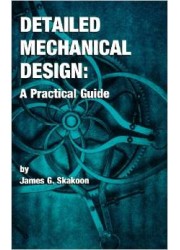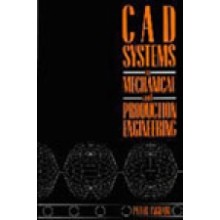Detailed Mechanical Design : A Practical Guide
Quantity:
-
Add to Compare
This book presents principles, rules, guidelines, and tips useful for designers and engineers when they design mechanical parts and assemblies. It contains descriptions and examples of real-world, practical ideas that come from successful design experience.
Applying the book's ideas and methods during detail design will improve how designers develop products and will result in superior mechanical designs.
The contents focus on mechanical design at the detailed level: how should parts and assemblies be configured for optimum performance. Methods are provided for synthesis and analysis in mechanical design. Basic design practices that will improve the strength, robustness, function, user handling, and manufacturability of parts and assemblies are described in depth. Guidelines for selecting plastic, rubber, and metal materials are presented. Finally, the book includes useful tips for selecting and designing components such as bolts, nuts, screws, springs, and adhesive joints.
This book contains information that is in the past could only be accumulated after years of experience and interaction with other designers. It is of interest to mechanical design and project engineers, as well as to industrial designers and engineering managers.
Preface
Chapter 1 : Introduction
Chapter 2 : Principles of Mechanical Design
Chapter 3 : Methods for Synthesis in Detail Design
Chapter 4 : Engineering Analysis in Mechanical Design
Chapter 5 : Design Practices
Chapter 6 : Materials
Chapter 7 : Components
Chapter 8 : Conclusion and Recommendations
Bibliography
About the Author
Index
Write a review
Your Name:Your Review: Note: HTML is not translated!
Rating: Bad Good
Enter the code in the box below:
Copyright © 2014 Engineering Standards Bureau. All Rights Reserved.
Developed By Zoom Into Web








